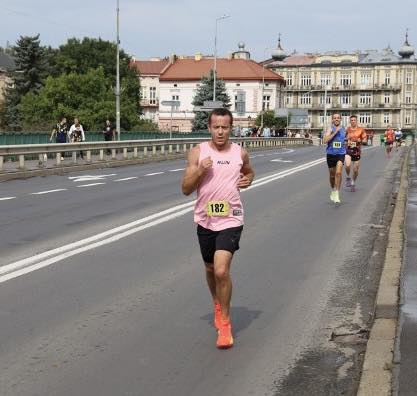Anniversary of the issue of the paper determining Poland's alliance with Lithuania.
Today in our calendar we will look at the events that led Kraków and Vilnius to join forces.
In the late 14th century, the Teutonic threat again increased. The Teutonic Knights, who completely pacified the conquered Prusai and joined the Inflantic Order of the Knights of Swords, grew even stronger. Thanks to effective abroad propaganda, they brought settlers and capital from Western Europe. A country where most of its manufacturing forces were converted into military forces, and its intent depended on conquering more pagan lands, urgently needed a fresh enemy.
Lithuania seemed to be an perfect field for the expansion of the Teutonic Knights, whose lands were wedged between spiritual Prussia and Inflanta. The attack on Lithuania was obvious, that Lithuanian princes stood firm against paganism, and the propaganda intent of the Teutonic Knights was the Christianization of the Gentiles. The Barbarian nature of the country was changed by Olgird's son, the grandson of Giedimina – Jagiełło, who became a large Lithuanian prince in 1377. The state inherited by him was immense (approximately 900,000 km2) but sparsely populated (about 2,000,000 inhabitants).
Lithuanian society was divided into 4 states: boyars, townspeople, free peasants and slave peasants, or prisoners of war on the ground. The country was in a major interior crisis. A fewer years of civilian war between Jagiello and uncle With a pocket. and his boy Witold led to the intervention of abroad powers in the territory of Lithuania. Jagiełło came out of the fight for victorious power, and an effective abroad policy dismissed the threat of Hungarian and Moscow.
The Teutonic Order remained a problem. His always more intense expeditions to the Mud Rheise made Jagielle aware that this time she is dealing with a more serious opponent than Rusins, Hungarians and Tartars. It turned out that his troops, although many and of good morale, were almost helpless in clashing with the steel-toed spiritual knights, who besides utilized various method innovations in the military field.
In the face of the impossibility of defeating the enemy in the field, the Lithuanian-Cross conflict turned into a chronic partisan war ending with a peace of 1382, under which Jagiełło gave the Order a large part of Żmuda. However, the conquest of the Teutonic Knights did not quit further intervention in Lithuania. Already the following year, they attacked Vilnius under the pretext of restoring Witold to the throne. The failure of the badly prepared crusade led to a settlement and unexpected interaction between the disputed cousins.
Jagiełło and Witold concluded that the intent of the Order is not only to set up the Vilnius throne of the favored ruler, but to complete the conquest and liquidation of their state. That's why they reconciled and began to search allies feverishly. They found them at the Kraków Court in a country that was threatened by Teutonic aggression.
At the beginning of 1385 Jagiełło began talks with Polish MPs about marrying Jadwiga. On August 14, that year, he issued an act of the Union in Blood. The paper provided for the matrimony of the large Lithuanian prince to Jadwiga and Jagiełła to the rudders of the Polish state nave. In return, the ruler of Lithuania undertook to baptize and begin the christening of his country. Apart from any insignificant promises, it is worth pointing out that Jagiełło joined Lithuania to Poland as part of the individual union under the paper issued.
The Polish-Lithuanian Union was dictated by a common interest. Both states faced the same threat from the aggressive Teutonic Order. In addition to the military alliance, the Poles hoped to halt Lithuanian raids and open up a immense east marketplace for their economical expansion. The Lithuanians, after their relation with Poland, expected aid in the fight against tatars and the increasing Moscow State. They besides hoped to get akin state privileges as in Poland.
In early 1386 Jagiełło received news that Jadwiga had agreed to marry him. The engagements with the Austrian prince were officially broken. The Lithuanian prince arrived in Poland, where on February 15, 1386 he was baptized taking the name Władysław, and 3 days later the couple married. Jagieło was much older than his wife. Their matrimony was a large sacrifice of Jadwiga to the country. All the more so, that Poland was her foster home. According to the account, the Queen treated Jagiello more like a father than a husband, but in general their relation was friendly.
Previous entry from our calendar is available Here.


















